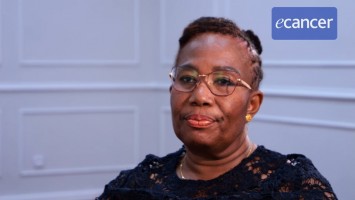At the conference I shared what we’re doing with the Asia-Pacific Oncology Alliance, how we’re working together, some of the key themes that came up in conversations, and what we plan to do next. The basis for this is how we view cancer, what is possible, and what patient needs are evolving right now. There’s a great opportunity to improve outcomes for patients in the region; yes it’s complex, and there are no one-size-fits-all answers, but we still need to ask that question.
Every market is having to consider how it will sustainably provide better cancer care options for their communities in the context of growing treatment costs, ageing populations, and pressure after COVID. We know from years of advocating for rare cancer patients in Australia, where the system was seriously failing there previously, that a lot can change through thinking big with small steps in the right direction, investing in great relationships, collaboration, and a shared vision over years.
This is not just about funding, but we know absolutely how important funding is as a critical enabler for change, but also a shared understanding from a range of stakeholders and an understanding of how important the patient voice is to have at the table, and what is required for that to happen is important. They can help everyone understand what better care looks like, how research can better answer these questions and what kind of changes need to happen.
Rare Cancers Australia is a patient organisation that’s leading this initiative and their purpose is to improve the lives and health outcomes of Australians living with rare and less common cancers. They do patient advocacy and support, and we’ve been working collaboratively with our peers in the region since 2016.
What does the Asia-Pacific Oncology Alliance do?
We initiated the Asia-Pacific Oncology Alliance because we know, based on our experience and working with our peers in the region, that focusing on collaboration and shared leadership with patient representatives and organisations can make a huge difference. We’re helping create together a space to talk about what that looks like and how that practically can happen. The APOA network includes patients, patient organisations, other community groups, clinicians, researchers, multiple industries, and healthcare decision-makers that believe in these principles as well.
We’re leading this work from a patient organisation perspective, it’s very consultative. We’ve had almost a hundred interviews with stakeholders across the region, and we have a very impressive advisory board with all of those stakeholders very active in helping us get this right.
Also I want to note that there’s a lot of stakeholders involved in helping drive positive change in the region and we are not starting from scratch. There’s a lot of great work already happening from organisations like UICC, CORE, Global Focus on Cancer, ATOM (Access to Medicines Foundation), the Max Foundation and more. There’s a lot of work happening and we want to really highlight great examples of how collaboration is making systems change happen.
What plans do you have for the future?
For the rest of this year we’ll continue to have further interviews and gain insights from key stakeholders. We’ve had two of our three webinars, the third webinar is September, where we have some of our amazing experts and patient organisations and other leaders in the region sharing their ideas - please join that in September if you’re interested. We will be launching our thought leadership report which has been collaboratively developed at ESMO Asia at the end of November.
Next year we look forward to working with a range of stakeholders on how we can tangibly make change happen in the region.







